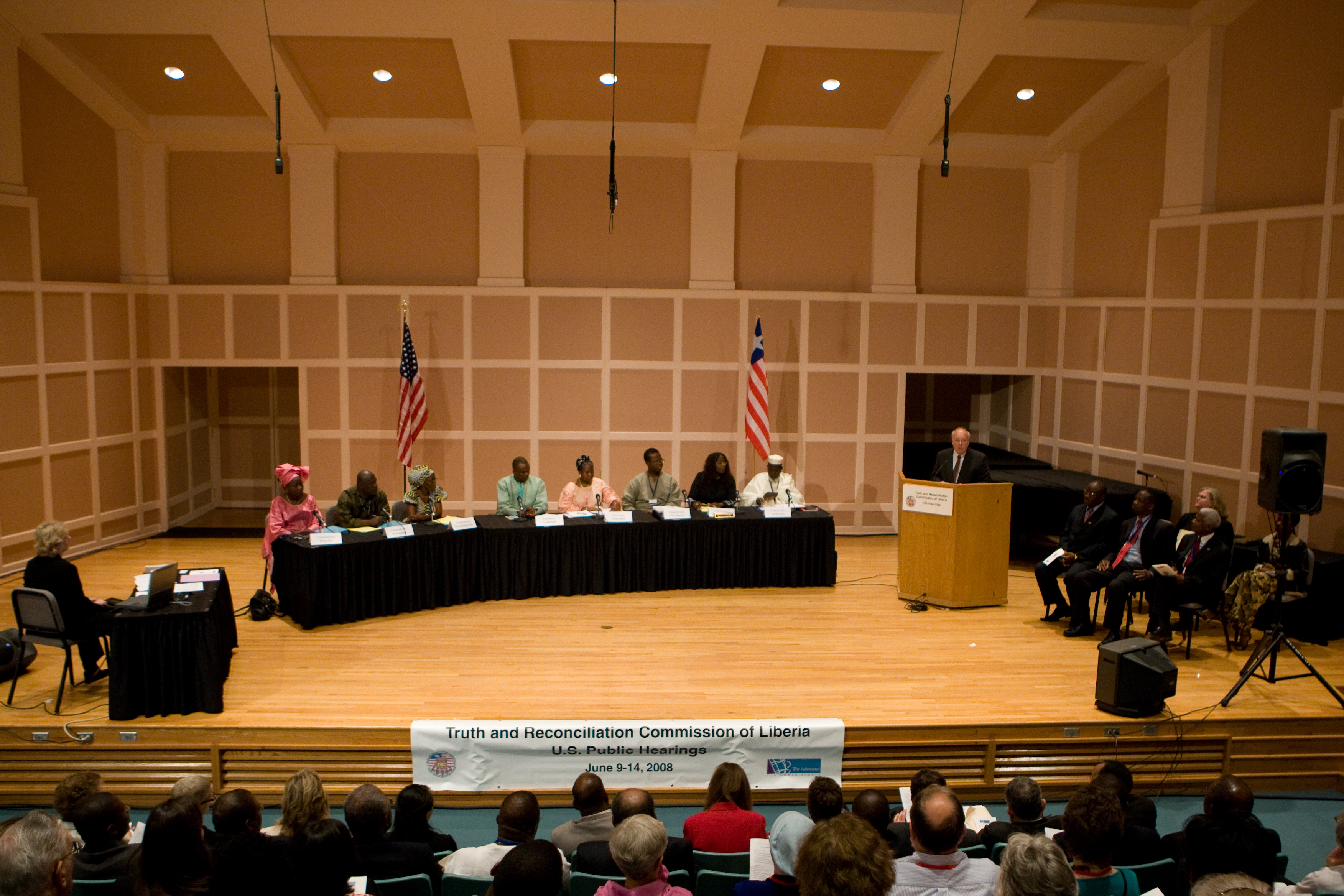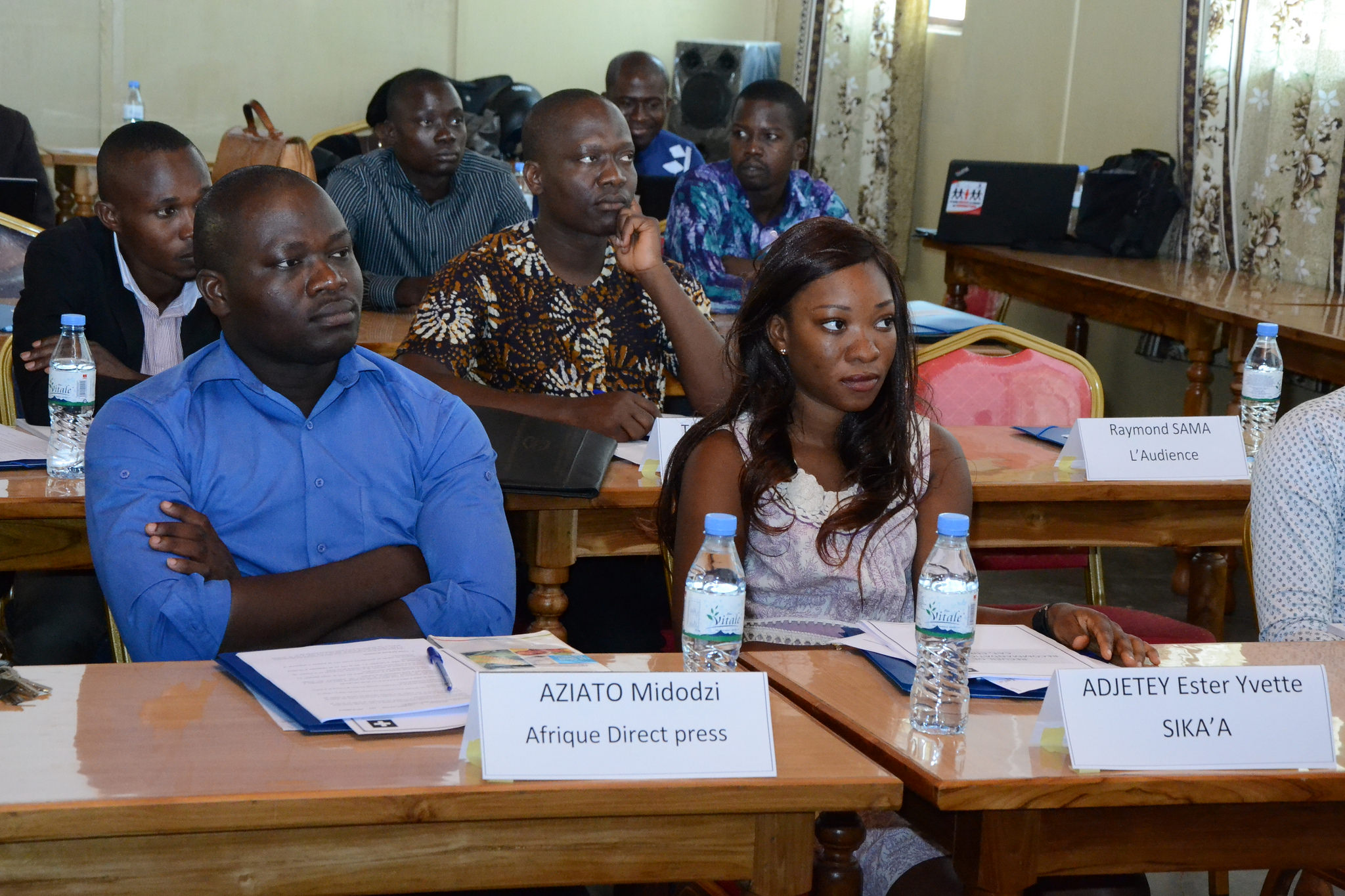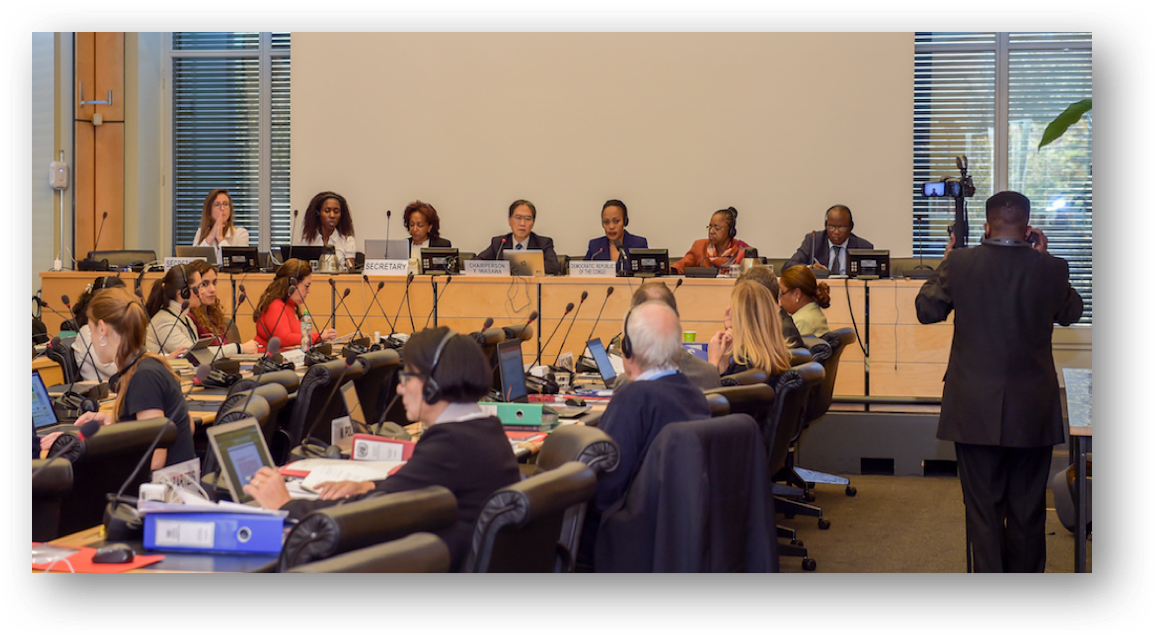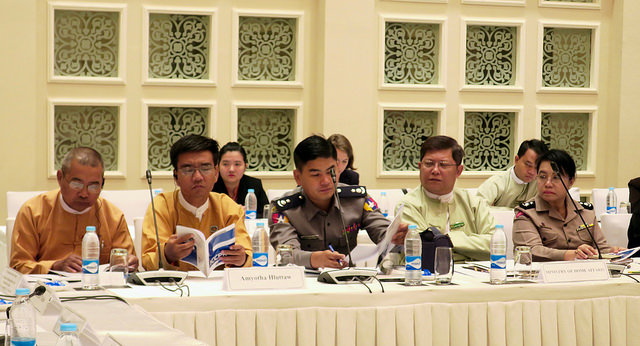The Centre stands with Liberian human rights defenders for effective monitoring of implementation of the ICCPR
Published on 01 Feb 2018, 09:58 AM
The first ever review of the ICCPR will take place in March 2018
 The Liberian Truth and Reconciliation Commission published a report in 2009, containing recommendations to redress violations. However, until today, their implementation has not been carried out.
The Liberian Truth and Reconciliation Commission published a report in 2009, containing recommendations to redress violations. However, until today, their implementation has not been carried out.
At the 122nd Session, to be held from March 12th to April 06th 2018, the Human Rights Committee will review Liberia's initial report under the article 40 of the International Covenant on Civil and Political Rights (ICCPR). This review will be an opportunity for the Liberian State to take stock of the progress, but also the challenges related to the implementation of the provisions of the said Convenant. In accordance with the practice, this review will give the Civil Society Organizations (CSOs) the opportunity to contribute to the process by giving the Committee their appreciation of the implementation of the Covenant in the country.
It is with this in mind that a delegation of the Centre, composed of André Kangni Afanou (Regional Coordinator) and Wendy Abbey (Consultant) was in Liberia from January 16th to 18th 2018. This mission provided an opportunity for national NGOs to:
- identify the challenges related to the implementation of the ICCPR;
- contribute to enhancing the capabilities of human rights defenders for an efficient contribution to the review;
- create synergy between the various categories of actors involved in this process.
"I am strongly convinced that this review is a great opportunity for ensuring that Liberia transitions into a State that fully complies with international obligations and protection of the rights for all citizens."
- Rev. Atty. Bartholomew, President of the National Commission on Human Rights
The national consultation
The consultation provided a unique opportunity for identification of challenges and NGOs capacity building.
During the two-day workshop, the main challenges of Liberia in the implementation of the ICCPR were identified and should serve as a basis for the drafting of the civil society shadow report. These challenges include, inter alia:
- Difficulties in implementing the recommendations of the Truth and Reconciliation Commission: This Commission was established in May 2005 to investigate human rights violations perpetrated by warring factions during 1979 to 2003. The investigations lead to the publication of a report in 2009, which presents a historical analysis of the root causes of the conflict in Liberia and 142 recommendations to redress violations. But until today, the implementation of these recommendations is being delayed.
- Access to fair trial and due process: Consultations with CSOs elucidated an apparent distraught amongst CSOs with the judicial system due to inter alia, an alleged interference (through corruption) of judicial procedures by individual politicians or persons with connections to politicians. This perceived corruption within the judiciary undermines progress on the attainment of the right to due process and fair trial and the mandate of the judiciary to act upon this provision.
- Treatment of persons deprived of their liberty: The places of detention in Liberia are characterized by overcrowding and very poor living conditions.
- Cases of torture and violations of the right to life: This is due to the restoration of the death penalty as well as discrimination against women, minority groups and indigenous peoples and on the exploitation of children. The 2011 Education Law of Liberia provides that no child shall be subjected to harmful traditional practices, including FGM, during school. However, many children of school-going age continue to undergo FGM. A National Working Group Against FGM was set up to secure the criminalization of FGM under component 16.21L of the Domestic Violence Act. However, the 53rd Parliament of Liberia struck out a criminalization clause in the Domestic Violence Act. One week to the transition in government, an Executive Order was issued by President Johnson Sirleaf seeking to ban FGM for girls under 18 years for a year. The Executive Order nonetheless, leaves room for FGM to be performed on adults with their consent.
Capacity building of 23 human rights defenders on the elaboration of an alternative report
For two days, human rights defenders in Liberia were grouped to participate in a workshop organized by the Centre. This has led to a better understanding of the reporting mechanism to UN treaty bodies in general and the ICCPR in particular. The importance of civil society participation has also been highlighted.
A synergy of actors around the review
The Center organized a series of meetings during which it was able to explain to the various parties the importance, not only to prepare their own contribution, but also to collaborate with others. This question was at the heart of the meetings between the Center and:
- the Rev. Atty. Bartholomew, President of the National Commission on Human Rights: their ambition as NHRI is to move away from national rhetoric on the protection of civil and political rights to pragmatic implementation of those rights through awareness raising and citizen participation.
- Mr.Kutaka Devine Togba, Director of the Division of Human Rights at the Ministry of Justice, in charge of coordinating the drafting of the State report. He reiterated Liberia’s commitment to fulfil its obligations under the Covenant. In furtherance to this, the Division in collaboration with the Steering Committee on National Human Rights Action Plan prepared and drafted the initial State report.
The review will take place in Geneva on 20 and 21 March 2018.
 The Liberian Truth and Reconciliation Commission published a report in 2009, containing recommendations to redress violations. However, until today, their implementation has not been carried out.
The Liberian Truth and Reconciliation Commission published a report in 2009, containing recommendations to redress violations. However, until today, their implementation has not been carried out.



.jpg)


